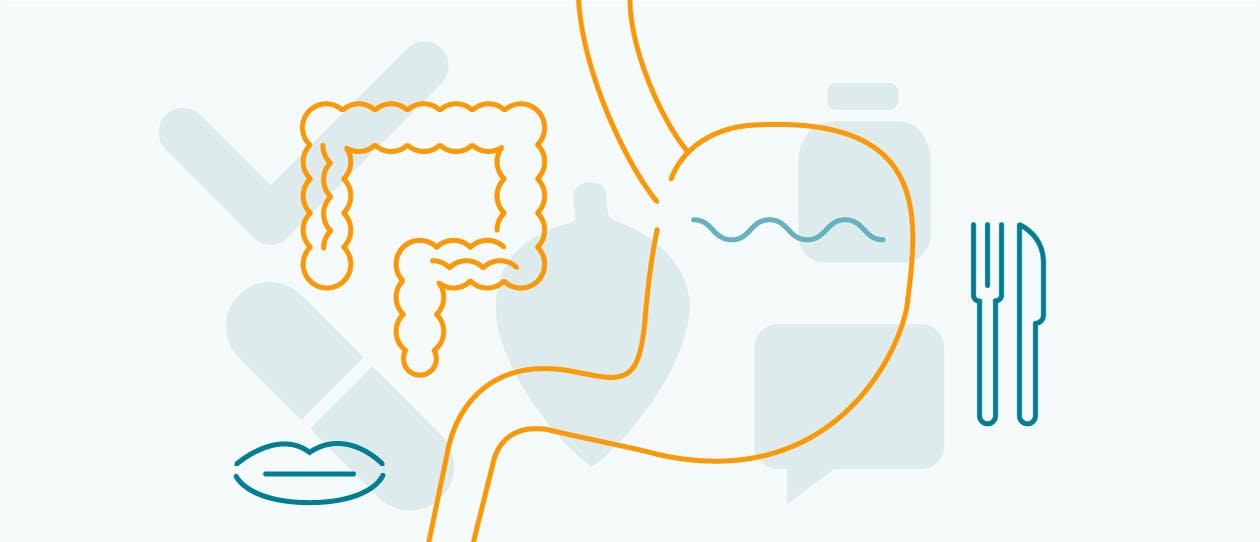
Food poisoning
1
Also known as infectious gastroenteritis, food poisoning is caused by consuming contaminated foods or water. The symptoms can vary from mild discomfort to life-threatening illness.


The symptoms of food poisoning can include:
As the name suggests, food poisoning is caused by the consumption of food or drink contaminated by bacteria, viruses or parasites. Amongst others, organisms that are commonly involved include rotavirus, Salmonella, Escherichia coli (E. coli), Campylobacter, and Giardia.
We’re particularly susceptible to food poisoning when travelling, especially in countries with poor hygiene practices, and where water quality is low. Uncooked or undercooked foods are also a particular risk.
Seek urgent medical advice if: